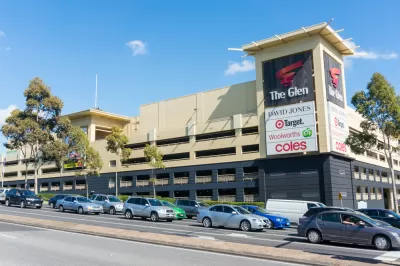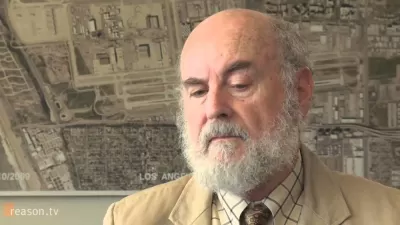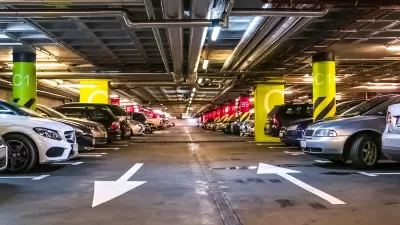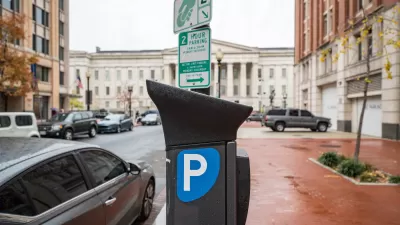A new study presented at the Transportation Research Board Annual Meeting builds a strong case that parking causes driving.

Eric Jaffe reports on the latest evidence that excessive parking actually causes more driving. The study, by Chris McCahill of the State Smart Transportation Initiative along with three University of Connecticut scholars, offers "compelling evidence that parking provision is a cause of citywide automobile use." According to Jaffe, the study found that evidence by "taking a page from epidemiology—adopting a framework meant for 'inferring causality' in the face of a statistical association known as the Bradford Hill criteria."
Jaffe's coverage of the study includes a close look at the methodology and findings of the study, but even for lay people it's important to note how difficult it is to prove causality (Jaffe takes the example of the link between cigarettes and lung cancer as an example)—especially with regard to a subject as political fraught and contentious as parking. In the case of this study, however, the deliberateness required to prove causality elucidates very clear insights into the consequences of parking policy around the country.
FULL STORY: The Strongest Case Yet That Excessive Parking Causes More Driving

Study: Maui’s Plan to Convert Vacation Rentals to Long-Term Housing Could Cause Nearly $1 Billion Economic Loss
The plan would reduce visitor accommodation by 25,% resulting in 1,900 jobs lost.

North Texas Transit Leaders Tout Benefits of TOD for Growing Region
At a summit focused on transit-oriented development, policymakers discussed how North Texas’ expanded light rail system can serve as a tool for economic growth.

Using Old Oil and Gas Wells for Green Energy Storage
Penn State researchers have found that repurposing abandoned oil and gas wells for geothermal-assisted compressed-air energy storage can boost efficiency, reduce environmental risks, and support clean energy and job transitions.

Private Donations Propel Early Restoration of Palisades Playground
Los Angeles has secured over $1.3 million in private funding to restore the Pacific Palisades playground months ahead of schedule, creating a modern, accessible space that supports community healing after recent wildfires.

From Blight to Benefit: Early Results From California’s Equitable Cleanup Program
The Equitable Community Revitalization Grant (ECRG) program is reshaping brownfield redevelopment by prioritizing projects in low-income and environmental justice communities, emphasizing equity, transparency, and community benefits.

Planting Relief: Tackling Las Vegas Heat One Tree at a Time
Nevada Plants, a Las Vegas-based nonprofit, is combating the city’s extreme urban heat by giving away trees to residents in underserved neighborhoods, promoting shade, sustainability, and community health.
Urban Design for Planners 1: Software Tools
This six-course series explores essential urban design concepts using open source software and equips planners with the tools they need to participate fully in the urban design process.
Planning for Universal Design
Learn the tools for implementing Universal Design in planning regulations.
Ascent Environmental
Borough of Carlisle
Institute for Housing and Urban Development Studies (IHS)
City of Grandview
Harvard GSD Executive Education
Toledo-Lucas County Plan Commissions
Salt Lake City
NYU Wagner Graduate School of Public Service





























